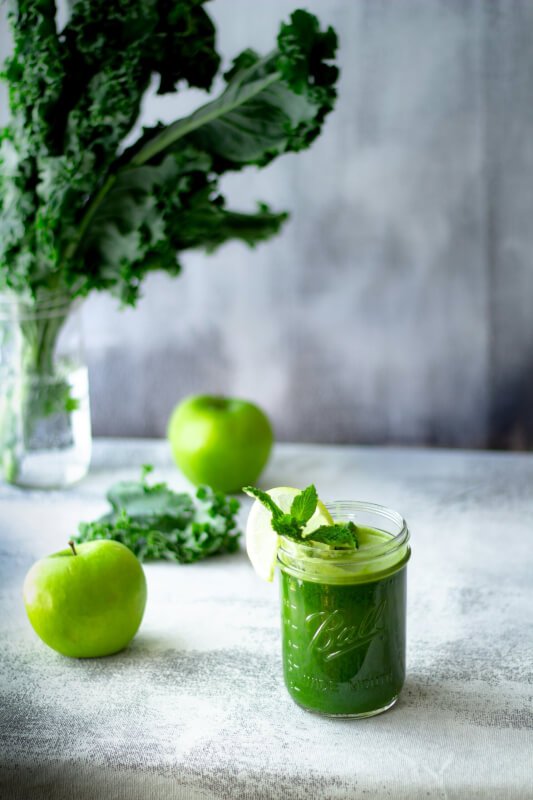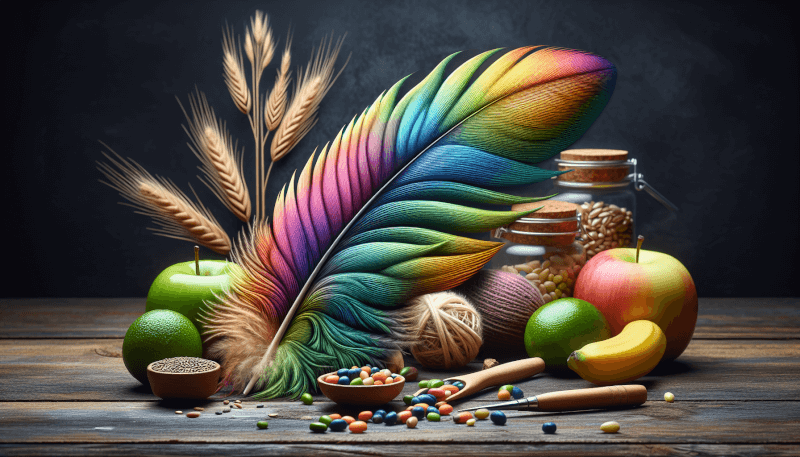Birds are fascinating creatures that bring joy to many people’s lives. If you’re a bird lover and want to ensure the well-being of your feathered friends, you’ve come to the right place. This article will provide you with a beginner’s guide to holistic health approaches for birds. From natural remedies to dietary suggestions, you’ll discover practical tips and advice to help your avian companions live their best and healthiest lives. So, get ready to embark on a journey that will deepen your understanding of bird healthcare and empower you to make informed decisions for the well-being of your winged companions.

Understanding Holistic Health
Definition of Holistic Health
Holistic health is a comprehensive approach to healthcare that focuses on the overall well-being of an individual, taking into account not only physical health, but also mental, emotional, and spiritual aspects. It recognizes that all these facets are interconnected and affect each other, and therefore aims to address the root causes of health issues rather than just treating symptoms.
Benefits of Holistic Health Approaches
Holistic health approaches offer a multitude of benefits for birds. By considering their physical, mental, emotional, and spiritual needs, holistic health practices can promote overall wellness and longevity. These approaches help strengthen the immune system, support natural healing processes, and enhance the bird’s quality of life. Additionally, holistic health approaches can address behavioral issues, reduce stress, and provide a sense of balance and harmony for the bird.
Natural Diets for Optimal Health
Importance of a Balanced Diet
A balanced diet is crucial for the optimal health of birds. It provides essential nutrients, vitamins, and minerals necessary for their growth, development, and overall well-being. A diet lacking in key nutrients can lead to various health problems, including weakened immune system, poor feather quality, and decreased lifespan. Offering a variety of fresh foods, including fruits, vegetables, grains, and proteins, can help ensure that birds receive a well-rounded diet.
Key Nutrients for Birds
Birds require a variety of nutrients for their optimal health. These include proteins for muscle development, carbohydrates for energy, fats for insulation and organ protection, as well as vitamins and minerals for proper bodily functions. It is important to provide a balanced mix of these nutrients in their diet to support their overall health.
Raw Food and Organic Options
Incorporating raw and organic foods into a bird’s diet can provide numerous benefits. Raw foods retain more nutrients compared to cooked or processed options, ensuring that birds receive maximum nutritional value. Organic foods are free from harmful pesticides, hormones, and antibiotics, reducing the risk of toxicity. By choosing raw and organic options, owners can provide their birds with the best possible diet for their holistic health.
Herbal Medicine for Birds
Introduction to Herbal Medicine
Herbal medicine has been used for centuries to support health and wellness in humans and animals, including birds. It involves the use of plant-based remedies, such as leaves, flowers, and roots, to promote healing and prevent or treat various health conditions. Herbal medicine for birds offers a natural and holistic alternative to conventional medication, with minimal side effects and a focus on supporting the body’s natural healing processes.
Common Herbs for Bird Health
Several herbs have proven beneficial for bird health. For example, chamomile can help calm and soothe nervous birds, while echinacea can strengthen the immune system. Milk thistle supports liver function, and dandelion acts as a natural detoxifier. Other common herbs for bird health include calendula, garlic, and nettle. These herbs can be used individually or in combination to address specific health concerns.
Making Herbal Remedies
Making herbal remedies for birds is a simple and rewarding process. It involves carefully selecting the appropriate herbs, preparing them in the desired form (such as teas or extracts), and administering them to the bird. It is important to consult with a knowledgeable avian herbalist or veterinarian to ensure the correct dosage and method of administration for each herb. By making their own herbal remedies, bird owners can actively participate in their pet’s holistic health journey.
Essential Oils for Bird Health
Introduction to Essential Oils
Essential oils are highly concentrated plant extracts that capture the natural essence and fragrance of plants. They have been used for centuries for their therapeutic properties, and can be a valuable addition to a bird’s holistic health regimen. Essential oils can be used topically, diffused in the air, or added to a bird’s environment to promote well-being and address specific health concerns.
Safe Use of Essential Oils for Birds
When using essential oils for birds, it is important to prioritize their safety. Birds have unique respiratory systems that make them particularly sensitive to airborne substances, including essential oils. It is vital to ensure that the oils used are safe for avian use and that they are properly diluted. A reputable avian veterinarian or experienced avian aromatherapist can provide guidance on the safe use of essential oils for birds.
Popular Essential Oils for Ailments
Several essential oils have demonstrated beneficial effects on bird health. For example, lavender oil can help calm and reduce anxiety, while eucalyptus oil can support respiratory health. Tea tree oil has antibacterial properties, and chamomile oil can soothe irritation. Some other popular essential oils for ailments include lemon, frankincense, and peppermint. It is important to research each oil’s specific properties and consult with a professional before using them on birds.

Homeopathy for Bird Health
Understanding Homeopathy
Homeopathy is a system of medicine that utilizes highly diluted substances to stimulate the body’s natural healing abilities. It operates on the principle of “like cures like,” meaning that a substance that produces symptoms in a healthy individual can be used in minute doses to treat those same symptoms in a sick individual. Homeopathic remedies are gentle, non-toxic, and can be beneficial for both acute and chronic conditions in birds.
Using Homeopathic Remedies for Birds
Using homeopathic remedies for bird health involves consulting with a qualified homeopath or avian veterinarian. They will consider the bird’s symptoms, medical history, and overall well-being to select the most appropriate remedy. Homeopathic remedies are typically administered orally or through water, and the dosage and frequency of administration can vary depending on the bird’s condition.
Selection of Homeopathic Remedies
There are numerous homeopathic remedies available for various bird ailments. For example, Arnica can help with bruising and trauma, while Ignatia can be beneficial for emotional stress. Nux vomica can aid with digestive issues, and Arsenicum album can alleviate symptoms of poisoning. It is crucial to work with a qualified professional to accurately diagnose the bird’s condition and determine the most suitable homeopathic remedy.
Natural Supplements for Optimal Well-being
Benefits of Natural Supplements
Natural supplements can play a significant role in supporting the holistic health of birds. They can provide essential nutrients, boost the immune system, aid in digestion, and promote overall vitality. Natural supplements can be particularly beneficial for birds with specific health conditions or for those requiring additional support during certain life stages, such as breeding or molting.
Choosing the Right Supplements for Birds
When selecting natural supplements for birds, it is important to consider their individual needs and consult with a knowledgeable avian professional. The supplements should be of high quality, free from artificial substances, and specifically formulated for avian use. Common natural supplements for birds include probiotics, vitamins, minerals, and herbal extracts. Tailoring the supplementation to the bird’s specific requirements ensures the most effective and safe results.
Dosage and Administration
Proper dosage and administration are crucial when using natural supplements for birds. Each supplement will have specific guidelines provided by the manufacturer or a professional avian consultant. It is essential to follow these guidelines carefully to avoid overdosing or underdosing the bird. Regular monitoring and adjustment of the dosage, as advised by a professional, can help optimize the bird’s response to the supplements.

Acupuncture for Bird Health
Overview of Acupuncture
Acupuncture is an ancient Chinese therapy that involves the insertion of thin needles at specific points on the body to stimulate energy flow and restore balance. This holistic treatment has been found to be effective for various health conditions in humans and animals, including birds. Acupuncture can help alleviate pain, reduce inflammation, improve organ function, and support overall well-being.
Benefits of Acupuncture for Birds
Birds can greatly benefit from acupuncture for various health issues. It can be particularly helpful in managing chronic pain, arthritis, respiratory disorders, and mobility problems. Acupuncture stimulates the release of endorphins, which are natural painkillers, and improves blood circulation, promoting the body’s natural healing processes. It is a safe and non-invasive therapy that can complement other holistic health approaches.
Finding an Avian Acupuncturist
When seeking acupuncture for a bird, it is essential to find a qualified and experienced avian acupuncturist. Not all acupuncturists are trained to work with birds, so it is crucial to seek out professionals who specialize in avian care. Veterinary acupuncturists or practitioners who have undergone extensive avian-specific training are the best choice for ensuring the bird’s safety and receiving effective treatment.
Chiropractic Care for Birds
Introduction to Avian Chiropractic Care
Chiropractic care for birds involves the manipulation of the bird’s spine and joints to restore proper alignment and function. This non-invasive therapy aims to improve nervous system function, alleviate pain, and enhance overall well-being. Avian chiropractic care can be beneficial for birds with musculoskeletal issues, such as spinal misalignments, joint restrictions, and muscle imbalances.
Conditions that Benefit from Chiropractic Care
Chiropractic care can benefit birds with various conditions and issues. Common conditions that may benefit from avian chiropractic care include wing or leg injuries, posture problems, spondylitis, and age-related degenerative changes. Additionally, birds involved in athletic activities, such as flying demonstrations or agility training, can benefit from chiropractic adjustments to optimize their performance and prevent injuries.
Choosing a Certified Avian Chiropractor
When considering chiropractic care for a bird, it is crucial to choose a certified avian chiropractor who specializes in working with birds. Avian chiropractors have undergone specific training to understand the unique anatomy and needs of birds. They use gentle techniques and take into account the bird’s size, condition, and temperament to ensure safe and effective treatment. Seeking recommendations from avian veterinarians or experienced bird owners can help in finding a certified avian chiropractor.

Massage Therapy for Avian Wellness
Benefits of Avian Massage
Massage therapy is a holistic approach that involves the manipulation of soft tissues to promote relaxation, reduce muscle tension, and improve circulation. Massage therapy can offer numerous benefits for avian wellness. It can alleviate stress, enhance digestion, boost the immune system, and improve overall physical and mental well-being. Birds can greatly benefit from regular massage sessions to support their holistic health.
Techniques and Tools for Bird Massage
When performing massage therapy on a bird, it is important to use gentle and specific techniques. These techniques include effleurage, petrissage, and gentle stretching. Massaging with the fingertips, knuckles, or specialized avian massage tools can effectively stimulate circulation and release tension. However, it is crucial to receive guidance and training from a certified avian massage therapist to ensure proper technique and avoid causing harm to the bird.
Finding a Certified Avian Massage Therapist
To provide the best massage therapy for a bird, it is recommended to seek the services of a certified avian massage therapist. Avian massage therapists have received specialized training in working with birds and are knowledgeable about their anatomy and behavior. They can provide tailored massage sessions that take into consideration the bird’s individual needs and can guide owners on how to continue the therapy at home.
Energy Healing Approaches for Birds
Reiki for Bird Health
Reiki is a form of energy healing that originated in Japan. It involves the transfer of healing energy through the practitioner’s hands to the recipient, promoting physical, emotional, and spiritual well-being. Reiki can be beneficial for birds by balancing their energy, reducing stress, and supporting relaxation. It can also aid in the healing process and complement other holistic health approaches.
Crystal Therapy for Avian Wellness
Crystal therapy involves the use of crystals and gemstones to harness their healing energies and promote balance in the body. Crystals can be placed near a bird’s environment or on their body to support their overall well-being. For example, amethyst can aid in calming, while citrine can promote vitality. Crystals should be selected with care and their use should be guided by a knowledgeable avian crystal therapist.
Pranic Healing for Birds
Pranic healing is a system of energy medicine that involves the manipulation and healing of the body’s energy field, known as the aura. It aims to remove energetic blockages, cleanse and energize the aura, and stimulate the body’s natural healing processes. Pranic healing can be beneficial for birds by addressing imbalances in their energy field and promoting overall wellness. Qualified practitioners can provide pranic healing sessions for birds to optimize their energetic well-being.
In conclusion, holistic health approaches offer numerous benefits for birds by addressing their physical, mental, emotional, and spiritual needs. Natural diets, herbal medicine, essential oils, homeopathy, natural supplements, acupuncture, chiropractic care, massage therapy, and energy healing approaches can all contribute to the overall well-being of birds and support their holistic health. By incorporating these practices into their daily care routines, bird owners can ensure that their feathered companions lead happy, healthy, and fulfilling lives.



